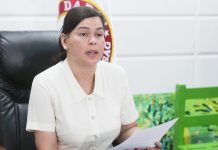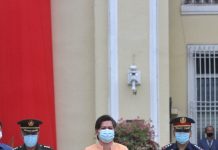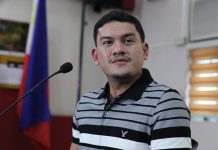About 9.1 million people belonging to the indigenous tribes in the Philippine may have not been included in the national census because there is no accurate count on their existence.
This prompted Reps. Teodoro Casiño and Neri Javier Colmenares (Party-list, Bayan Muna) to file a bill seeking the inclusion of the ethnic origin of indigenous peoples in the national census.
Casiño said indigenous people from Luzon, Visayas and Mindanao include the tribes of Tingguian, Isneg, Ibaloi, Kankanaey, Itawes, Malaweg, Yagad, Bugkalot, Gadding, Agta, Ati Dumagat, Mangyan, Bangon, Tadyawan, Alangan, Iraya, Buhid, Taobuhid, Hanunuo, Ratagnon, Tagbanwa, Malbog, Batak, Taut bato, Manobo, Bagobo, Bilaan, Tiruray, Mandaya-Mansaka, Subanen and Mamanwa.
It was estimated that indigenous peoples comprise about 10 to 15 percent of the Philippine population, which have already reached 91 million.
In filing House Bill 1460, Casiño said the inclusion of the ethnicity indicator will generate disaggregated demographic data on the indigenous peoples, while the language indicator will produce data relevant to the ethno-linguistic groups in the country.
Casiño said the national statistics fail to reflect the situation of the indigenous peoples because data on indigenous peoples are hidden in national averages.
“Even to date, an accurate count of the indigenous peoples population in the country is not available,” Casiño said.
Casiño explained that the law governing indigenous people’s rights is not fully realized because of the lack of data on the indigenous population in the country.
Colmenares cited Section 21 of the Indigenous Peoples Rights Act (IPRA) which accords the members of the indigenous cultural communities/indigenous peoples the rights, protections and privileges enjoyed by the rest of the citizenry and Section 25 which speaks of their right to special measures for the immediate, effective and continuing improvement of their economic and social conditions.
Colmenares said the state of deficient disaggregated data on indigenous peoples in the country has a significant implication on the government’s planning and decision-making.
“I believe it is deemed for government’s policies, programs and projects to become sensitive and responsive to the needs of the country’s indigenous people and there should be timely, accurate and useful statistics on the indigenous peoples population,” Colmenares said.
Under the measure otherwise known as “Ethnic Origin Act of 2010,” the National Statistics Office (NSO) is directed to ensure the inclusion of ethnic origin in its national survey starting 2010 in coordination with the National Commission on Indigenous Peoples (NCIP).
Furthermore, the measure defines indigenous peoples as a group of people who are regarded as indigenous on account of their descent from the population, which inhabited the country at the time of conquest or colonization, or at the time of inroads of non-indigenous religions and cultures, or the establishment of present state boundaries.
The term includes those who retain some or all of their own social, economic, cultural and political institutions but who may have been displaced from their traditional domains or who may have resettled outside their ancestral domains.






